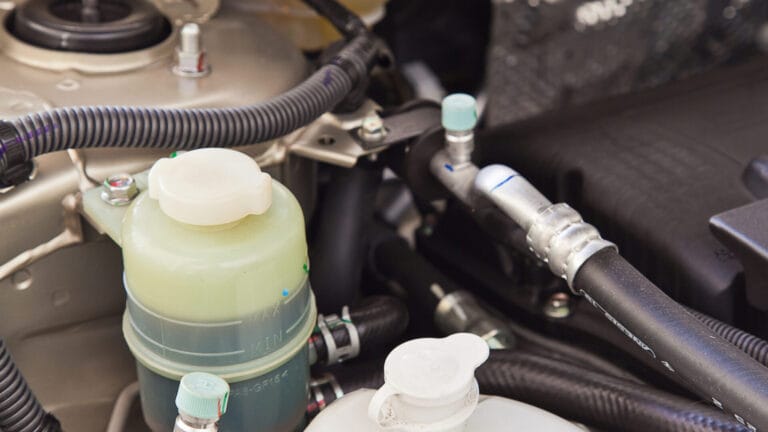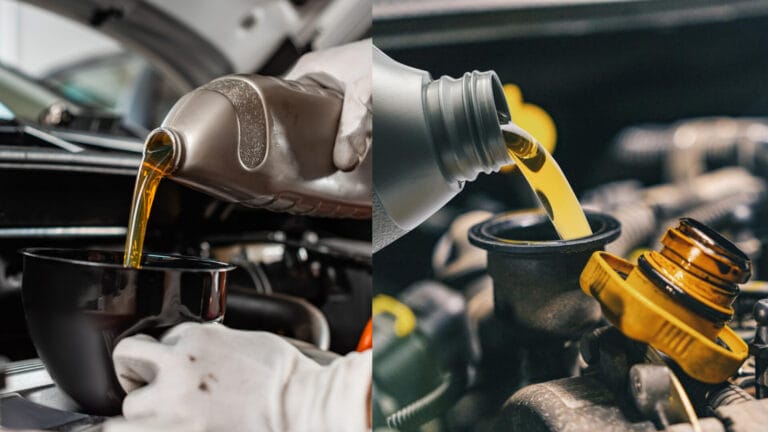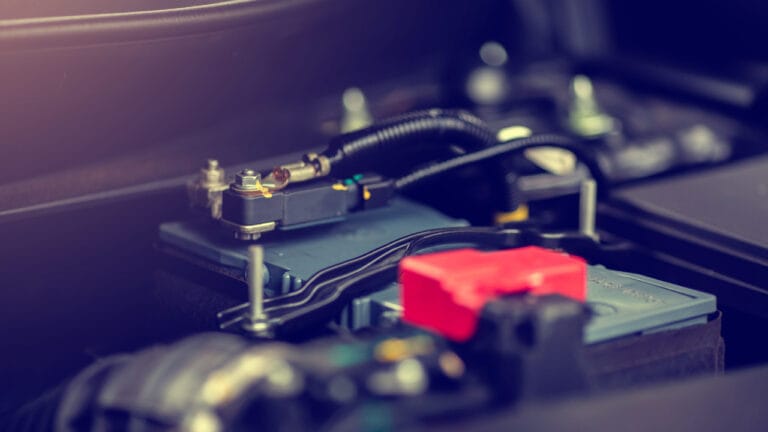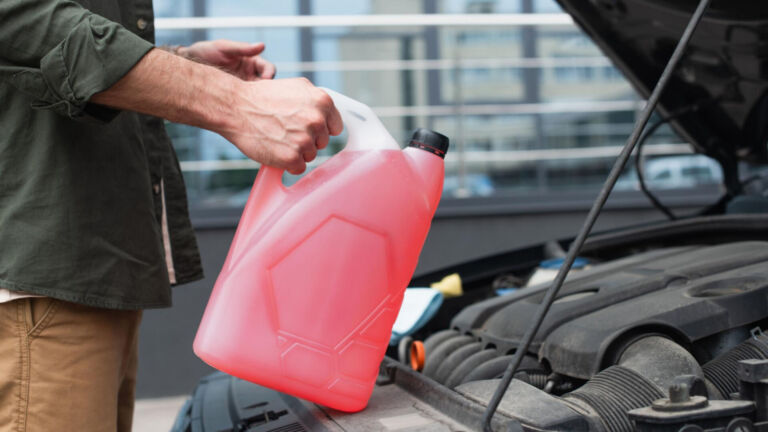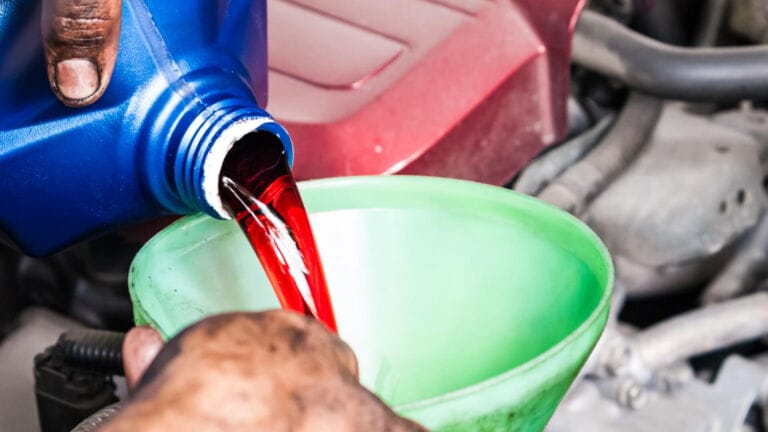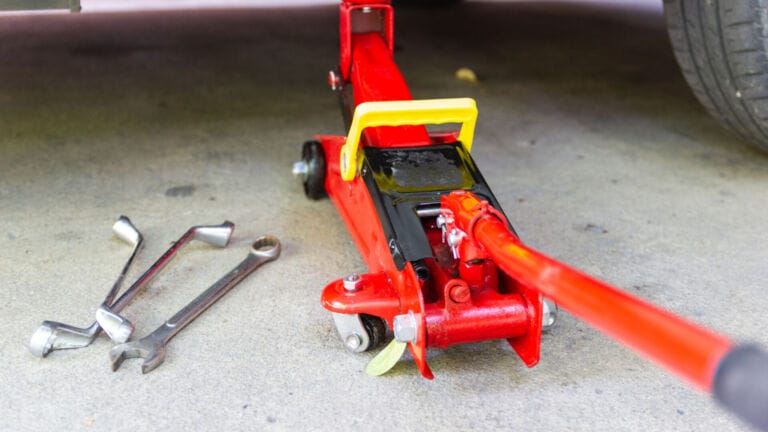The Battle of Brake Fluid vs Clutch Fluid: Explained
Every gearhead knows that maintaining a car is more than just a chore; it’s a passion.
Imagine your car as a living, breathing entity. In this analogy, fluids are the lifeblood, ensuring that every part of the vehicle functions as it should.
From engine oil to transmission fluid, every fluid is critical in maintaining the car’s performance and longevity.
So, understanding the fluids that keep your car running smoothly is a fundamental step toward becoming a responsible and empowered car owner.
In our last article, “Can you use brake fluid in hydraulic jack,” we mentioned the word clutch fluid. And now we are getting lots of questions regarding clutch fluid like “is brake fluid and clutch fluid the same?”, “Can you use clutch fluid in the braking system?” and so on.
So, I thought of sharing a detailed guide on brake fluid VS clutch fluid to clear all your doubts.
Understanding Brake Fluid & Clutch Fluid
The dynamic duo of your car’s hydraulic systems are brake fluid and clutch fluid. Both liquids are the same, containing the same additives and properties with two different purposes in two different systems. All the difference is in their uses and how they work; they serve different purposes.
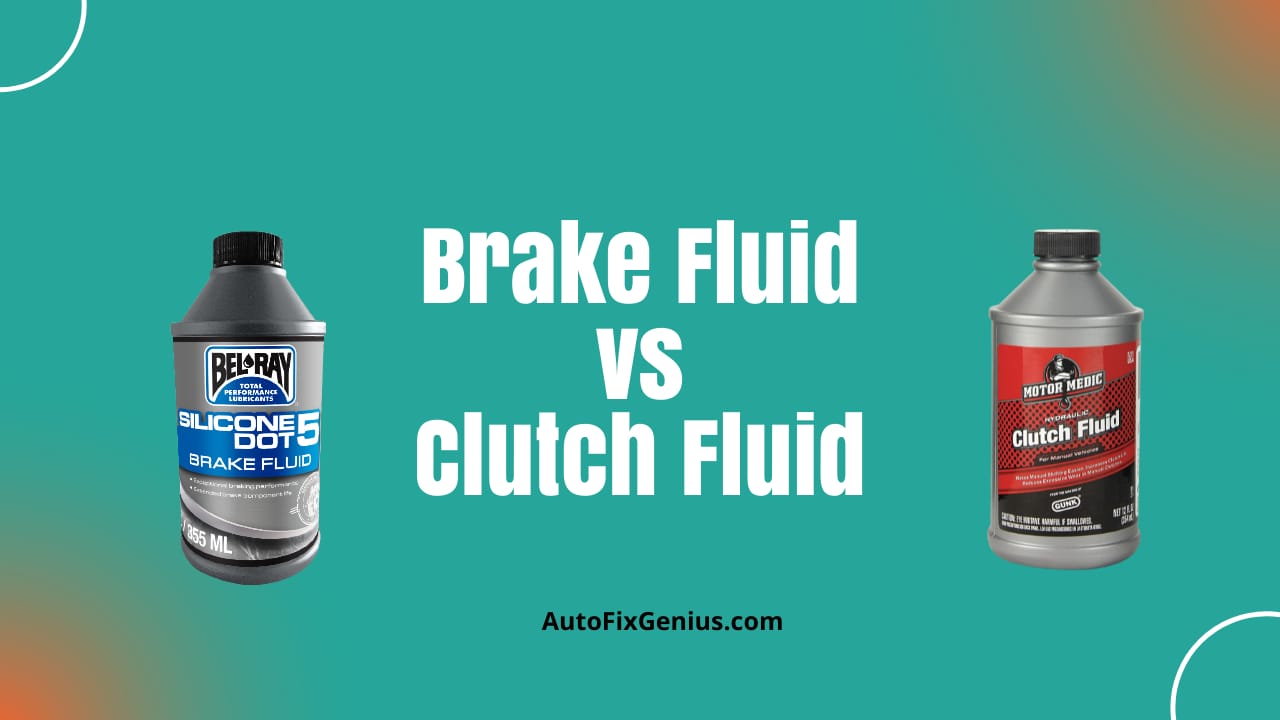
Let’s know what they are and how they work.
Brake fluid-The Unyielding Protector
Brakes are like the fiery heart of your car. When you press that brake pedal, the resulting brake pad friction generates temperatures that would make most materials crumble under pressure. But in this high-temperature crucible, brake fluid shines.
Brake fluid is a specially formulated hydraulic liquid that runs through your car’s brake lines and master cylinder. Its mission is clear: it’s the bridge between your foot’s intent and the brake calipers and drums, kickstarting the vital process of halting your car’s forward motion.
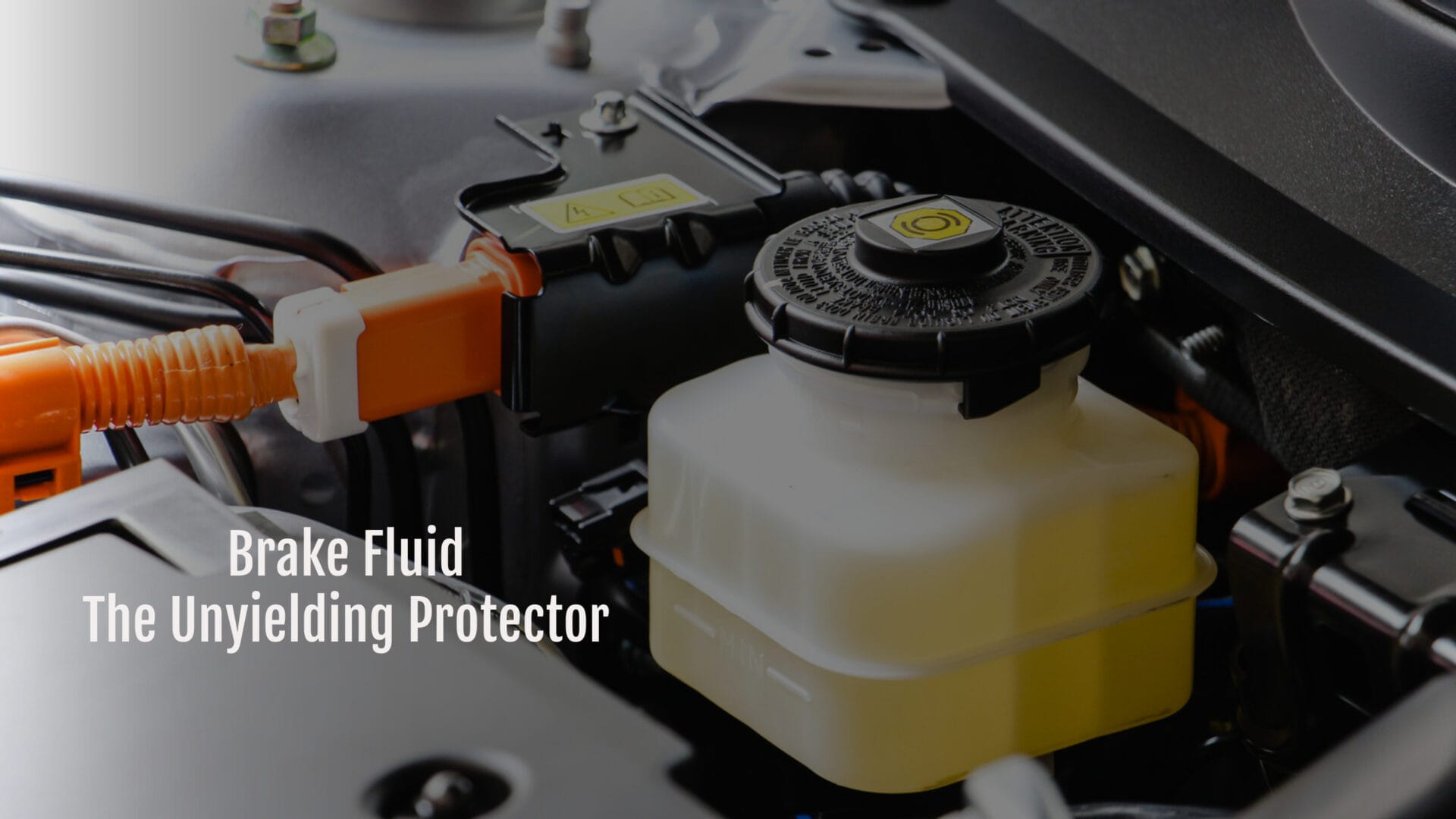
While the brakes work their magic and the world blurs by, brake fluid stands unwavering. It resists boiling in the brake fluid reservoir, even when the situation is at its most fiery, ensuring your braking system performs its duty with steadfast reliability.
Without this heat resistance, your brake lever could fail when you need it most, leading to a hair-raising situation on the road.
Clutch fluid-The Gear-Changing Magician.
Clutch fluid, similar to brake fluid, is a hydraulic fluid. It plays a distinctly different role in enabling those smooth gear changes.
When you step on the clutch pedal, this uncelebrated magician springs into action, transferring the force from your foot to the clutch fluid reservoir. It’s responsible for the seamless engagement and disengagement of the clutch, enabling those smooth gear shifts we often take for granted.
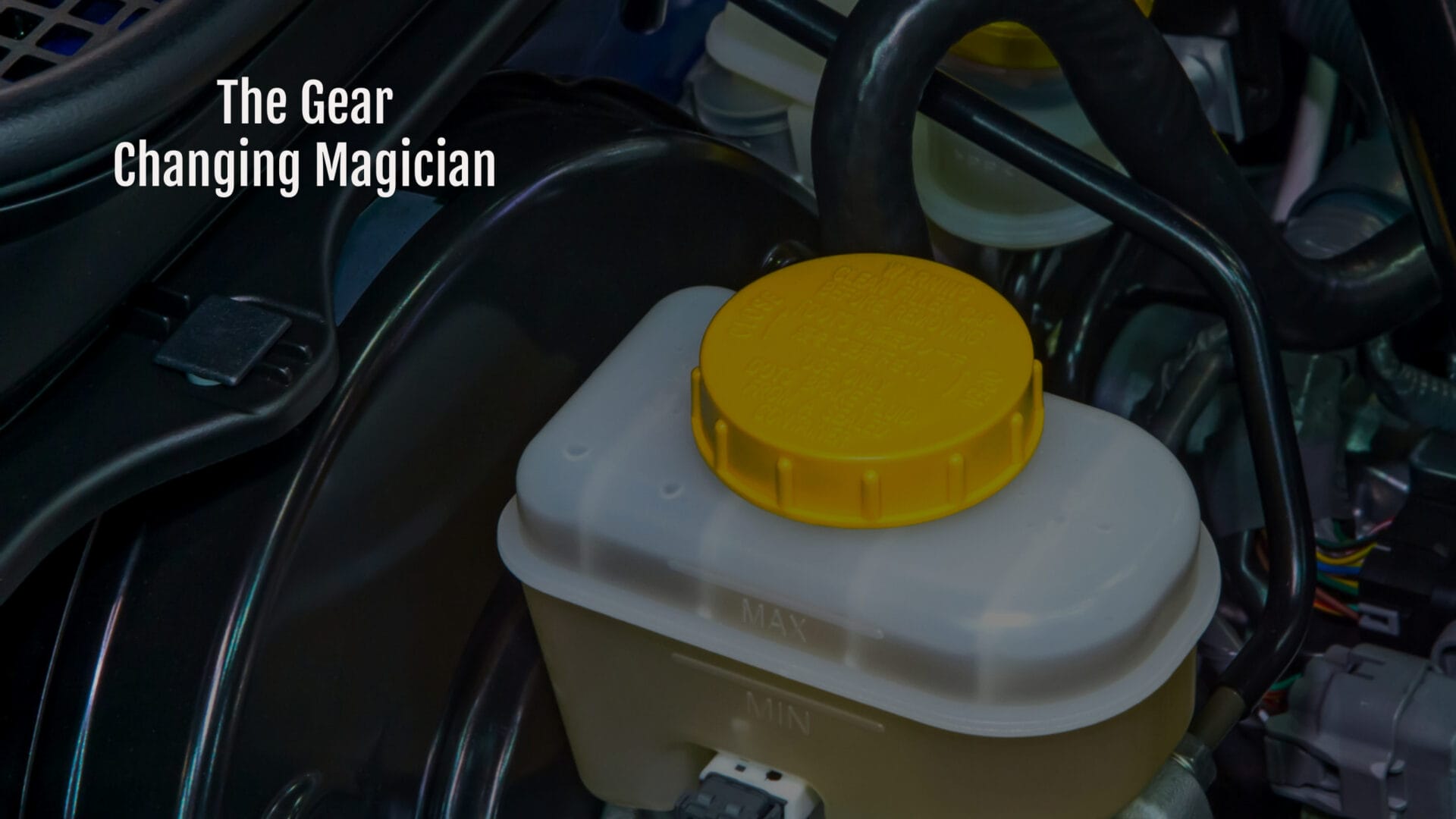
What’s intriguing is that, unlike brake fluid, clutch fluid doesn’t have to endure the extreme heat generated during braking. However, it can withstand those high temperatures because it shares the same composition as brake fluid.
In essence, it’s like a superhero with two identities – brake fluid by composition but a crucial gear-shifting aid in the clutch system.
Are Brake Fluid and Clutch Fluid the Same?
Yes, brake and clutch fluids are the same, containing the same additives and properties. They are typically composed of the same glycol-ether or silicone-based fluids. Brake fluid is stored in the slave cylinder, and clutch fluid is stored in clutch master cylinder. However, they are also used in two different systems for two purposes.
While brake fluid transmits hydraulic pressure to the brake system, allowing the vehicle to come to a complete stop, clutch fluid enables the clutch pedal to engage the clutch system, enabling the driver to shift gears smoothly.
Four types of brake fluids- DOT 3, DOT 4, DOT 5, and DOT 5.1 are available in the market. Though all these types of fluids are the same, DOT 3 and DOT 4 are the recommended brake fluids to use on the clutch because the clutch fluid doesn’t need to endure lots of heat like brake fluid.
However, it doesn’t mean you can’t use DOT 5 or DOT 5.2 as clutch fluid.
Can I use the same fluid for both my brakes and clutch?
Yes, you can use the same hydraulic fluid known as brake fluid for both your brakes and clutch, but different types. Brake fluid comes in four classes with different viscosity and boiling points matching the fluid to the system’s needs.
DOT 3 and DOT 4 are formulated with lower viscosity and boiling point, while DOT 5 and DOt 5.1 are higher.
For example, brakes must withstand higher temperatures generated during braking, so it’s wise to use a different fluid with a higher viscosity and a higher boiling point (DOT 5 and DOT 5.1) to ensure optimal performance and safety.
Conversely, for the clutch system that operates at lower temperatures, a brake fluid with lower viscosity and a lower boiling point (DOT 3 and DOT 4) may be more appropriate.
FAQ
Can I use DOT 4 brake fluid as clutch fluid?
Yes, you can use DOT 4 as clutch fluid. DOT 4 is a lower viscosity and boiling point brake fluid that is the perfect fit for the clutch system.
What happens if you put brake fluid in a clutch?
Clutch will work as regularly even after you put brake fluid in a clutch. Because clutch fluid and brake fluid are both the same hydraulic fluid designed for the hydraulic system.
Can you use DOT 3 brake fluid for the clutch?
Yes, you can use DOT 3 brake fluid for the clutch. DOT 3 is a clean fluid lower in viscosity and boiling point and can efficiently endure the standard temperature the clutch system generates.
Are clutch and brake fluid same on motorcycle?
Yes, the clutch and brake fluid are also the same on the motorcycle. So you can use the clutch fluid on the brake and brake fluid on the clutch system without worrying anymore.
How often should I replace my brake and clutch fluids?
If you have a well-maintained hydraulic system, like you are taking complete care of it, you may not need to replace your brake and clutch fluid in 2-3 years. But if you see damage symptoms that demand fluid replacement, you can shorten the time. Drain the old fluid line and refill with new fluid.
However, it’s better to do an inspection of the brake and clutch fluid level every four to six months.
Verdict
In the world of car maintenance, knowledge is your most potent tool. Whether you’re looking to save money, ensure your safety, or extend the life of your car, knowing about fluids and how they work is a step in the right direction.
Now that we know about brake and clutch fluid and their respective roles, you’re better equipped than ever to keep your vehicle running smoothly.
So, don’t stop here. Dive deeper into the world of these essential fluids in your car, master the art of their maintenance, and remember that every drop of knowledge propels you toward becoming a more skilled, capable, and self-reliant car owner.

